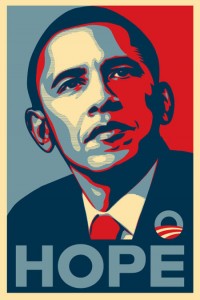This is part 2 of a 3-part article.
Read Part 1 Here
Read Part 3 Here
 Most recently, Ralph Nader has argued that the only solution to our current problems is for the super-rich to use their influence and power to reduce corporate power in the world and let governments save us.
Most recently, Ralph Nader has argued that the only solution to our current problems is for the super-rich to use their influence and power to reduce corporate power in the world and let governments save us.
Government offers the most hope to mankind, this view argues, and corporations are the problem. Greedy corporations caused the economic downturn, according to this view.
In contrast, the famous Shell Oil Global Scenarios have made a case that government cannot and will not solve truly global problems like energy, environment, transportation, economic ups and downs, communication and education.
Their solution is for corporations with experience planning across borders to be given the power to make and follow a “blueprint” for global success.
Leaving it to governments would cause a mad “scramble” toward more war, poverty, depression and suffering, according to this view.
After all, the corporations say, when the economy fell it hurt most companies and nearly all governments. Only the biggest corporations remained strong ⎯ so they should govern us!
Both sides (“Government Should Fix It” and “Big Business as Savior”) see the other as a dangerous utopian scheme.
Consider, for example, the issue of health care (or energy policy, unemployment, boosting the economy, or any other national issue). Most officials and media personnel see the debates as political, between conservatives and liberals.
To a certain extent ⎯ votes in Congress ⎯ this is true. But the real debate is much deeper and broader than politics.
It is about who we are as human beings and where we’re headed as a society. While there are still some supporters of pre-modern or modern views, governments and businesses have so far failed to deliver heaven on earth or even ideal society.
The End of Conservative versus Liberal
 For most people today, neither of these institutions are the answer.
For most people today, neither of these institutions are the answer.
When conservatives talk about faith-based initiatives or Republicans tout trickle-down economics, most people are skeptical. Likewise when liberals emphasize anti-corporate measures or Democrats roll out the latest government program.
The result of this growing skepticism characterizes the rise of the independents.
A few independents are anti-government and a few are anti-corporation, but the large majority just want government to do its job, do it well, and stop trying to do everything else.
While there is heated debate over what, exactly, is the government’s job, most independents would settle for good national security, good schools, fiscal responsibility, social equity, and a high-opportunity economy.
While the Left hopes to create a good economy through government programs and the Right through big business initiatives, most independents want both ⎯ along with less regulation on small business.
But this tectonic shift in American society is much bigger than politics. Most Americans, and indeed many around the world, have lost faith in modernism itself, in the promise that big, powerful, man-made institutions⎯be they church, government or corporation⎯can solve our problems.
Indeed, there is a growing sentiment than most big institutions tend to increase the world’s problems.
Business, church and government all have a place in society, the independents say, but none are the “higher” powers we once hoped for.
Postmodernism and Independents
Enter post-modernism. While nearly every person who writes about postmodernism defines it differently, one thing is clear: The fastest growing worldview is not modernism.
That is, postmodernists are of many stripes, but they don’t believe that government or business will save us. Period. And they are the new majority.
Independents are likely to read and champion ideas from both Milton Friedman and Ralph Nader, vote for both Barack Obama and Arnold Schwarzenegger, and quote both Ted Kennedy and Ronald Reagan.
Neither liberals nor conservatives understand them.
What is the cause of this social/cultural/political earthquake?
At least part of it is that independents no longer have a basic faith in the infallibility or fundamental goodness of government or the market. They see a role for both, and feel that both must be limited.






Speak Your Mind
You must be logged in to post a comment.